Can Coffee Cause Cancer? Separating Fear from Fact in Your Morning Brew
Coffee is more than a beverage it’s a global ritual, a daily habit, and for many, a source of joy and productivity. But from time to time, health headlines raise unsettling questions like: Can coffee cause cancer?
As one of the most consumed drinks on Earth, coffee has been the subject of thousands of health studies. And as a brand committed to quality and transparency, Bazan Coffee wants to help you understand the real relationship between coffee and cancer with science-backed clarity, not fear.
In this article, we explore what the most reliable sources Specialty Coffee Association (SCA), Coffee Quality Institute (CQI), World Coffee Research, Barista Hustle, and peer-reviewed journals actually say about this controversial topic.
Introduction: The Origins of Coffee-Cancer Concerns
The concern that coffee might cause cancer mainly stems from two sources:
-
The presence of acrylamide, a naturally occurring chemical that can form when coffee beans are roasted at high temperatures.
-
Older studies associating hot beverage consumption with esophageal cancer risks.
But modern research has shown these fears are often overstated or misunderstood especially when coffee is consumed in moderation and produced using specialty-grade standards like Bazan’s.
Can Coffee Cause Cancer? Examining the Evidence
1. Acrylamide in Coffee: What You Need to Know
Acrylamide is a compound formed when starchy foods are cooked at high temperatures. It is present in many foods, including bread, french fries and yes, roasted coffee.
However, the amount of acrylamide in coffee is extremely low.
According to the International Agency for Research on Cancer (IARC), a body of the World Health Organization, coffee was removed from the list of potential carcinogens in 2016, after comprehensive review of over 1000 studies.
Furthermore, CQI's 2022 Food Safety in Coffee report notes that:
-
Light and medium roasts typically contain more acrylamide than dark roasts but even then, levels are within safe consumption thresholds.
-
Specialty-grade coffee roasters, like Bazan, use precise temperature control and quality beans to reduce acrylamide formation while maintaining flavor integrity.
Bottom line: The levels of acrylamide in coffee are far below those considered hazardous by regulatory bodies such as the FDA and EFSA.
2. Does Drinking Hot Coffee Increase Cancer Risk?
Another concern came from studies suggesting that very hot beverages (above 65°C / 149°F) may increase the risk of esophageal cancer.
But this risk isn’t about coffee it’s about temperature.
A 2018 report from the World Coffee Research Institute concluded: “When coffee is consumed at typical drinking temperatures (below 60°C), there is no evidence of increased cancer risk.”
Bazan’s brewing recommendation encourages customers to let coffee cool slightly (to around 55–60°C) to preserve flavor and protect tissue aligning perfectly with the safest temperature zone.
3. Antioxidants in Coffee: A Cancer-Fighting Ally?
Let’s shift focus to coffee’s protective properties.
Coffee is one of the most antioxidant-rich beverages in the modern diet. Compounds like:
-
Chlorogenic acid
-
Cafestol and kahweol
-
Trigonelline and polyphenols
…have all been linked to reduced inflammation, DNA protection, and reduced risk of certain cancers, including liver, endometrial, and colorectal cancer.
The SCA’s 2023 Health & Coffee review cites evidence from over 40 clinical studies showing reduced cancer mortality in moderate coffee drinkers.
Bazan's processing method, especially our washed Cau Dat Arabica and medium-roast Vietnam Blend, helps preserve these compounds without over-roasting or introducing harmful residues.
Can Coffee Actually Help Prevent Cancer?
Yes especially when brewed properly and enjoyed as part of a healthy lifestyle. Some key findings from independent research include:
-
A 2020 meta-analysis published in BMJ showed that moderate coffee consumption (3–4 cups/day) was associated with a reduced risk of all-cause mortality, including cancer-related deaths.
-
Coffee intake is linked to a 40% lower risk of liver cancer and 15–20% lower risk of colorectal cancer, according to the World Cancer Research Fund.
These effects are likely due to coffee’s anti-inflammatory, antioxidant, and insulin-sensitizing properties.
Other Factors to Consider
Can Poor-Quality Coffee Increase Health Risks?
Yes. Low-grade, mass-produced coffee may be more likely to:
-
Contain mycotoxins
-
Be over-roasted (leading to higher acrylamide levels)
-
Include residual chemicals from poor farming practices
Barista Hustle emphasizes that specialty coffee sourcing and roasting standards reduce these risks substantially.
Bazan Coffee partners with smallholder farms using sustainable practices, fermentation control, and precision roasting to deliver not only exceptional taste but also chemical safety.
Does Coffee Increase Estrogen or Hormonal Cancer Risk?
Some earlier studies suggested that very high caffeine intake could affect estrogen levels. However, no link has been established between coffee and breast or ovarian cancer in updated reviews.
In fact, a 2022 study published in Cancer Epidemiology found that regular coffee drinkers had no increased risk of hormonal cancers, and some even showed reduced risk in postmenopausal women.
Best Practices: How to Enjoy Coffee Safely and Smartly
|
Risk Area |
Recommendation |
Bazan Solution |
|
Acrylamide |
Choose medium roast, avoid over-roasted beans |
Special Vietnam Blend |
|
Mycotoxins |
Use specialty-grade, tested coffee |
Cau Dat Arabica |
|
Temperature |
Let brew cool to <60°C before drinking |
Pour-over or cold brew |
|
Hormonal sensitivity |
Limit to 1–2 cups daily, avoid sugary lattes |
Drink clean and black |
|
Health benefit maximization |
Brew fresh, no additives, drink with food |
All Bazan Coffees |
Conclusion: Can Coffee Cause Cancer? Not When You Brew the Right Way
The scientific consensus is clear: moderate coffee consumption does not cause cancer. In fact, coffee may help reduce cancer risk thanks to its powerful antioxidants and metabolic benefits.
At Bazan Coffee, we take pride in crafting products that celebrate purity, precision, and wellness. Our beans are hand-selected, carefully processed, and roasted to preserve the natural benefits of coffee without exposing you to health risks.
Choose Health-Smart Coffee with Bazan
-
Cau Dat Arabica – Washed, low-acid, rich in antioxidants, gentle on your system.
-
Special Vietnam Blend – A smooth, balanced medium roast perfect for everyday health-conscious enjoyment.
-
Fine Robusta – Krong Năng – High energy with controlled roast precision best for those seeking bold flavor without risk.
Drink with confidence. Brew with intention. Choose Bazan Coffee crafted for flavor, trusted for health.



